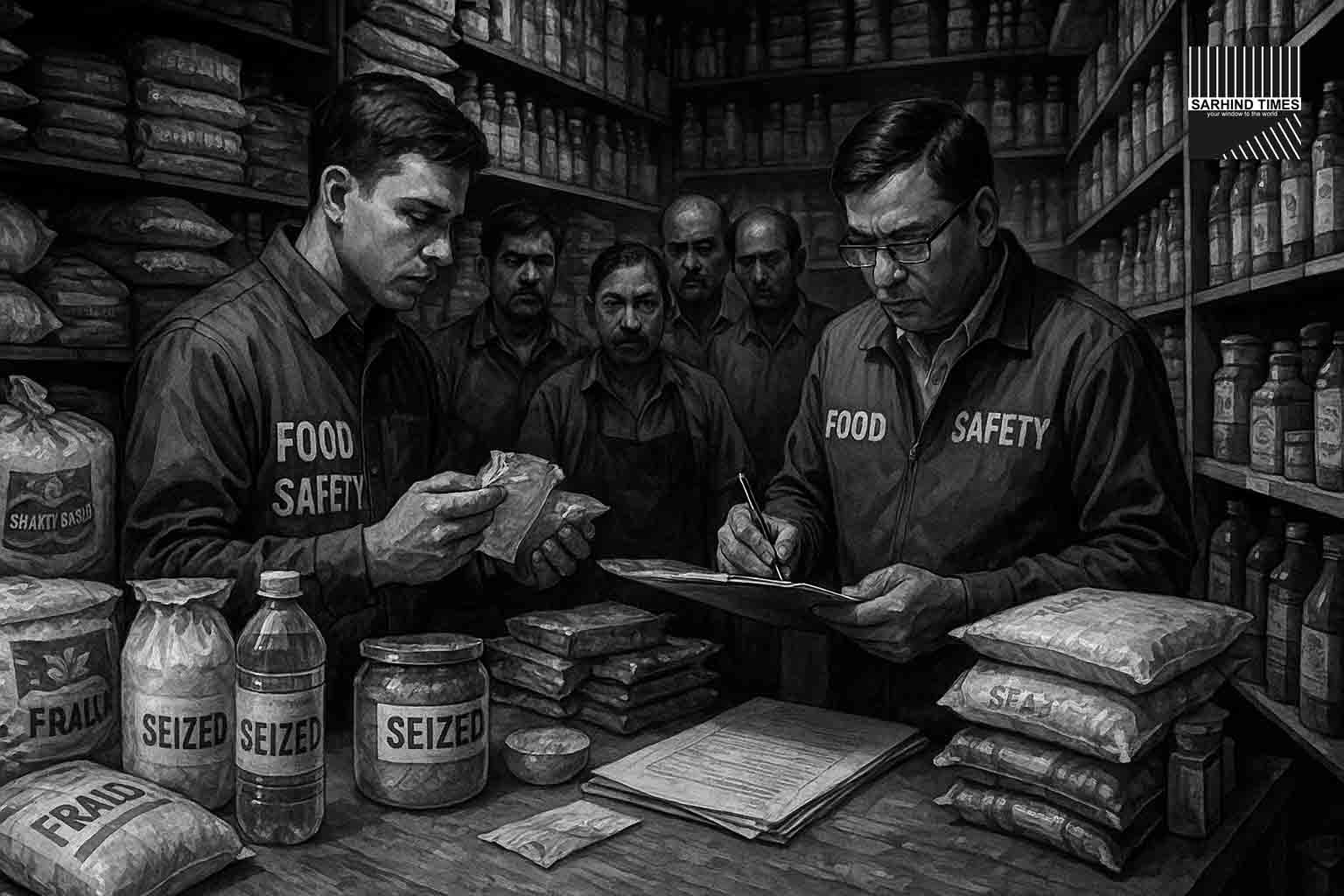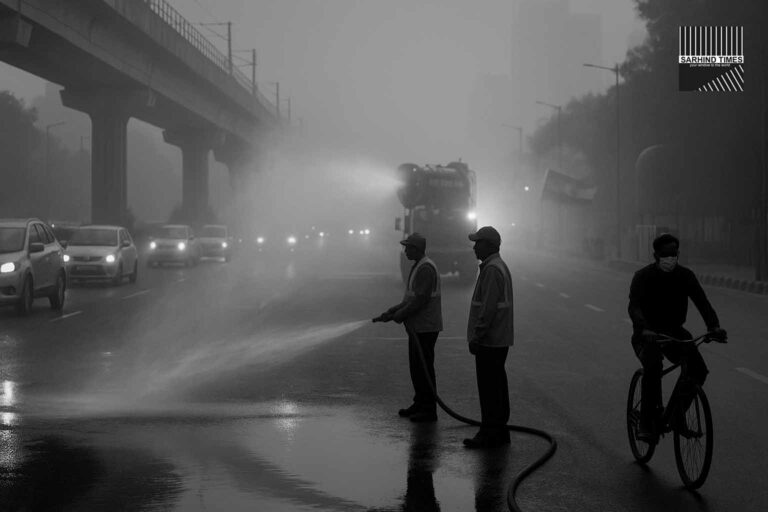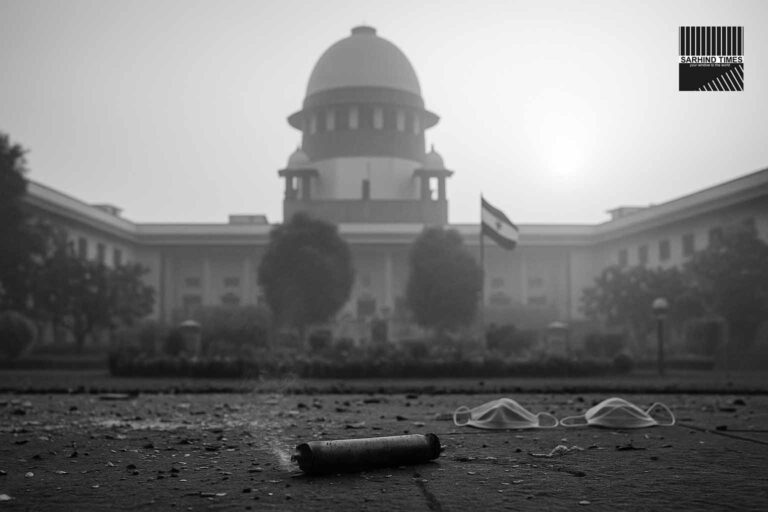By Sarhind Times Bureau
GURUGRAM: As Navratri celebrations bring a surge in demand for fasting staples across the city, food safety officials have intensified checks to safeguard public health. In a high-alert drive this week, teams from Gurugram’s food safety department raided eight shops and seized 16 samples of commonly consumed items, ranging from flours to oils and sugars, for testing. The raids revealed not only possible adulteration but also glaring violations of licensing and labeling rules.
The move underscores the city’s vulnerability to food adulteration during festive seasons, when consumer demand peaks, and unscrupulous vendors exploit the rush with substandard or unsafe products.
The Raids: What Was Found
According to officials, eight outlets—ranging from neighborhood kirana stores to mid-sized wholesalers—were inspected. Focus areas included:
- Flours: Kuttu (buckwheat) atta, Singhara (water chestnut) atta, Samak rice flour.
- Staples: Sabudana (tapioca pearls), jaggery, bura (powdered sugar).
- Oils: Mustard oil and other edible oils frequently used for frying festive snacks.
From these, 16 samples were seized and sent to the state food lab in Karnal for detailed analysis. Early signs of violation include:
- One store operating without an FSSAI license.
- Unpackaged and unlabelled goods being openly sold to consumers.
- Suspected adulteration in sugar and flour, pending lab confirmation.
Officials confirmed that strict legal action will follow if lab results confirm adulteration. “Festivals are a time of devotion, not exploitation. We will not allow unsafe food to reach people’s plates,” a senior food safety officer told Sarhind Times.
Why Navratri Food Is Vulnerable
Navratri is a unique festival where millions observe dietary restrictions, avoiding regular grains, salt, and certain spices. Instead, fasting households consume alternatives like kuttu flour, singhara atta, samak rice, sabudana, fruits, and dairy-based items.
This concentrated demand creates a fertile ground for malpractice:
- Quick profits: Unscrupulous traders mix cheaper ingredients (such as ordinary flour or starch) into specialty fasting flours.
- Oil adulteration: Mustard oil is often blended with mineral oil or cheaper substitutes.
- Sugar contamination: Bura sugar and jaggery are prone to mixing with chalk powder or synthetic whiteners to enhance appearance.
Health experts warn that consuming such adulterated foods during fasting—when diets are already restricted—can trigger acute health issues like stomach infections, food poisoning, and allergic reactions.
A Past Reminder: Sector 14 Incident
The urgency of the raids is not unfounded. In March 2024, residents of Sector 14 reported a spate of stomach ailments allegedly linked to adulterated fasting flour. Several patients required hospitalization, forcing authorities to launch a probe. That case highlighted how seasonal adulteration spikes during festive seasons, often escaping detection until harm is done.
“Fasting foods should be of the highest purity. But in many cases, they are the most tampered with, because buyers assume these items are ‘special’ and don’t question quality,” said nutritionist Dr. Anupama Singh.
Consumer Advisories
The department has urged consumers to:
- Purchase only sealed and branded products with visible FSSAI labels.
- Avoid loose, unpackaged flour, sugar, and jaggery.
- Retain bills and packaging for traceability in case of complaints.
- Report suspicious vendors via the food safety helpline.
Public advisories will continue throughout Navratri, accompanied by surprise checks at wholesale markets, particularly in Sadar Bazar and new township hubs.
Legal Action Under FSSA
Violators face prosecution under the Food Safety and Standards Act (FSSA), 2006. Penalties include:
- Fines up to ₹10 lakh for misbranding or unsafe practices.
- Cancellation of licenses for repeat offenders.
- Imprisonment in cases of confirmed adulteration causing public harm.
Officials emphasized that one shop already booked for operating without an FSSAI license will be barred from reopening until compliance is ensured.
Broader Pattern in Haryana
Gurugram is not alone. Across Haryana, similar drives are being carried out in Faridabad, Rohtak, and Hisar. In 2023, statewide raids during festive seasons revealed that 1 in every 8 samples tested failed to meet food safety standards.
The challenge lies in the mismatch between demand and supply. Specialty fasting staples are not produced in bulk year-round, creating an artificial shortage that opportunistic traders exploit.
Public Health at the Core
Doctors at Civil Hospital, Gurugram, support the crackdown. “Festive adulteration often leads to clusters of gastroenteritis cases. Families come in with similar symptoms after consuming fasting foods bought from the same vendor. Preventive checks are far more effective than post-outbreak treatment,” noted Dr. Ramesh Bhatia.
Consumers, too, are voicing support. Homemaker Kavita Arora, shopping for Navratri supplies in Sushant Lok, said: “We cannot test food quality at home. Only authorities can protect us. These raids should continue every year.”
Way Forward
Experts believe three measures are critical:
- Regular Festive Raids: Pre-festival inspections should become institutionalized.
- Technology Use: QR-code tracking on packaged items to verify authenticity.
- Consumer Awareness: Schools, RWAs, and resident groups should host workshops on spotting adulteration.
Unless these steps are institutionalized, raids may deter fraud temporarily but not eliminate it.
Conclusion
As the city prepares for nine days of fasting and devotion, the raids are a timely intervention to remind traders of their responsibility and assure consumers of safe, unadulterated food. With lab results pending, the spotlight now shifts to whether the seized samples confirm adulteration—and how strictly the law follows through.
For Gurugram’s residents, the message is clear: vigilance is as sacred as devotion.
#Gurugram #FoodSafety #Navratri #FSSAI #Adulteration #PublicHealth #Haryana #SarhindTimes

























+ There are no comments
Add yours